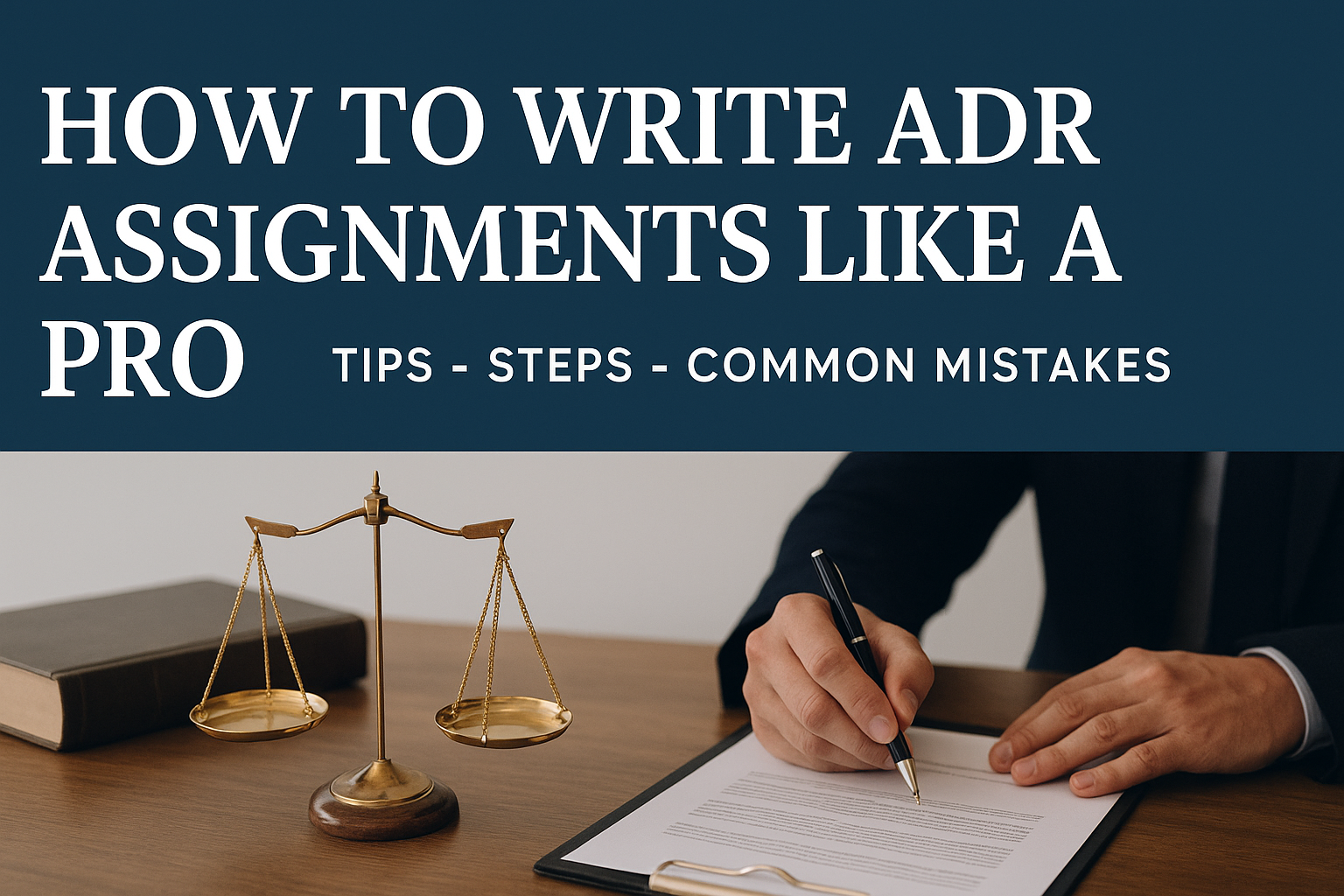
Let's be real, a law school assignment on contract disputes can feel a bit overwhelming, especially when the prompt throws in something like "Alternative Dispute Resolution." All of a sudden, you're not just dealing with dusty old court cases; you’re looking at how people actually solve problems without having to go to war in a courtroom.
This guide is here to be your co-pilot. I'll walk you through a simple approach to writing a killer paper, highlight the most common traps to avoid, and give you some easy fixes to make sure your work shines.
Think of it as a shortcut. Instead of going through the long, expensive, and public process of a lawsuit, ADR offers different ways to hash things out. It's a huge deal in the world of contracts because it's often faster, cheaper, and way more private. Plus, it can help people save their business relationships, which is something a judge can't do.
Here are the main types you'll likely cover:
The key to a good paper is showing that you know the difference between these. Don't just lump them together under the umbrella of "ADR."
Once you've got a firm handle on the concepts, you can build your paper around this simple framework:
You start off with a vague or incorrect definition. Oops. The reader is already confused, and you've lost some credibility.
The Fix: Start with a clear, concise definition. Take a moment to explicitly explain the differences between the methods. You could even use a simple comparison table to make it impossible to miss.
You've got a lot of opinions, but nothing to back them up. Your paper lacks legal weight and rigor.
The Fix: Every major point needs a source. If you're referring to arbitration, please consult the relevant legislation. If you’re discussing an arbitrator’s power, find a case where a court has either upheld or challenged their ruling.
You only talk about the good things about ADR, making it sound like it's a perfect solution. Nothing in law is perfect!
The Fix: Present a balanced argument. Acknowledge the downsides, like the potential for an unfair outcome, the high costs of some forms of commercial arbitration, or the fact that a mediated agreement isn't always legally enforceable.
Your paper is hard to follow. It's either full of jargon that no one understands or it's a jumbled mess with no clear structure.
The Fix: Use a logical flow with clear headings. And remember, you're writing for a person. Avoid overly complex legal language where a simpler word will do just as well. Most importantly, double-check your citations and references and get feedback from law assignment help , it's a little thing that makes a big impression.
By following these tips, you'll be well on your way to writing a top-notch paper that shows you really get this topic, not just on the surface, but in its dynamic, real-world role. In case you need additional help with your assignments, you can hire our tutors at Assignment Help Australia to get detailed analysis of your assignment and get real time feedback to up from grades.
Get
500 Words Free
on your assignment today